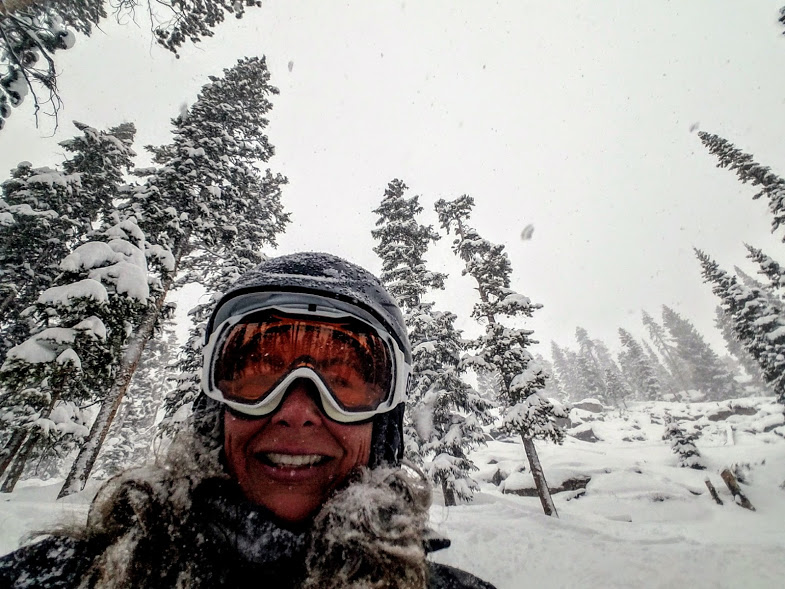I’ve been thinking about this a lot in the last few weeks. Thinking about it ever since Peter O’Sullivan asked me to tell him my story when I was a patient demo during his Cognitive Functional Therapy workshop at the San Diego Pain Summit.
And every time I think about it, I get teary. It touches something deep within me that I’ve been trying to figure out. As someone who has been telling my story for a good three plus years now on this blog you wouldn’t think it’d have such an effect on me to be asked to tell it.
But I’ve been telling my story unsolicited. No one asked me to, I just started sharing my experiences. And it’s been incredibly therapeutic for me. It allows me to explore questions, reflect on what’s happened, and try to make sense of what’s going on with what I have learned and what I have lived.
It has also let me know that I’m not alone. Sharing my story has allowed me to connect with people in meaningful ways, even if only via the interwebs. I have a tribe of folks who get me. Who hear and understand me, who encourage me and celebrate my successes, and who support me and lift me up when I fall.
Tell me your story…
But not one healthcare professional ever asked me to tell them my story. I’ve been asked all sorts of kind and probing questions before, of course. How are you today? What brings you here today? How can I help you? Tell me about your pain. Tell me about your hip…
Never tell me your story, though. And that’s different. That’s about my entire narrative, not just the painful bits. The painful bits certainly inform and influence the narrative, but that’s not all there is.
Pain is not just felt in a body part, after all. It reverberates through our entire being, our whole life. Our whole story. By asking only about our pain we are never asked about our suffering, and they’re different.
Suffering is about what the pain means
The pain in my hip meant losing a valued career. It meant losing my identity and feeling lost. It meant worrying about the future that suddenly looked so different than the one I had planned for. A future that was dark and scary and uncertain. Pain meant losing my sense of self-worth, my purpose.
It meant losing me.
And pain was everything in those early years. And it only meant loss. Loss of self, of financial security, of friends, of career prospects, of beloved hobbies and activities, of adventure, of hope, of my dreams.
That was why I suffered. Not the pain in my hip so much, but what the pain meant for my life, for me as a person. And it all seemed pretty meaningless at the time.
All that pain, all that suffering, all that loss.
What is my story?
It’s sure not just about pain, not just losses, not just suffering. My story goes well beyond pain. It involves my identity and sense of worth, values and goals, barriers and obstacles, feelings and emotions, behaviors and reactions, thoughts and beliefs, hopes and dreams, fears and worries. It involves laughter and adventure, coziness and love, nature and books, good food and drink, awesome people and places.
My story involves my pursuit of meaning and purpose, my definitions of success, my ability to adapt and persist, learn and grow.
For a long time, though, pain was the whole story. For a long time I’d felt like pain was something that had come in and taken over my life. An unwanted intruder. Something that didn’t belong. Something I spent all my time and energy trying to be rid of it. I battled it, and fought and resisted.
It was exhausting and left no room for anything else.
It wasn’t until I stopped battling, stopped fighting, that things started to change, though. Wasn’t until I stopped resisting that I stopped suffering. Only then could I start living a meaningful and purpose-centered life rather than a pain-centered life. Only then was there room for the things that mattered to me.
What is pain?
There is no simple definition. What I do know is that pain is a part of me, a part of my story. I can’t just be rid of it by wishing it away or thinking positively and even doing everything ‘right’ doesn’t mean it will be banished.
This isn’t to say that I will always have pain, nor is it to say that I won’t. It just means that pain is a part of my life right now, though a much smaller part than in years past, and that pain will always be a part of my life in the form of memory and experience, even if someday it resolves completely.
Pain is woven throughout the fabric of my life. No matter what happens in the future it will always be a part of my tapestry. That’s ok. It hasn’t all been suffering, after all. Pain has also awakened in me a need to reflect, to seek meaning, to find purpose and perspective. It has helped me define what is important to me, what I value and the ways in which I want to connect with the world.
Pain has a tendency to bring existential questions to the forefront of our minds, doesn’t it? Why am I here? How did I get here? What is my path? Where am I going? What really matters?
So pain has played a role in shaping who I am today, as have all of my other life experiences. And I kinda like who I am.
My story includes snowboarding and cheesy grins :)
Acceptance
That’s acceptance, isn’t it? Not surrendering to pain, not giving up or giving in, but rather surrendering to life. Our experiences, even painful ones, are not the enemy.
Acceptance means giving up the tireless fight and giving in to reality. It’s doing what we can within that reality to pursue purpose and live meaningfully. It’s about opening ourselves up to possibility, to growth, to what truly matters.
And it doesn’t mean accepting this present now as our future, too. This moment is not a forever now, even though it may feel like it. Everything is impermanent. Our emotions, our sensations, our thoughts – all impermanent. They can and will change, and we can facilitate that change.
We will get through it. We always have.
Guides
But we can’t get through it alone. I thought for a long time I could. But even with all that *I know* about pain, it’s hard to apply it to myself. It’s hard to see my own big picture. Even writing about my pain here on this blog it’s never the whole story all at once. I never seem to connect all the dots.
That’s why Pete asking me to tell my story was so profound, not to mention the actual telling of it. The power of that dialogue, of sharing my narrative with someone who was obviously attentive and caring, who truly listened and was able to reflect back to me my story and probe to go deeper, cannot be overstated.
Hear us
To have someone hear your whole story and believe you and reassure you and let you know you’re not alone is invaluable. Even when you (think you) know a lot. Even when you’ve lived pain for and studied pain for years.
A trusted, knowledgeable, empathetic guide can help us reflect honestly and provide perspective and reassurance, and through such, help us forge our path forward from a place of safety and support. (My dear friend Lissanthea, a PT, shares the importance of this in her recent piece on her sciatica experience, too).
This might be the crux of care to begin with. Not what you do so much as what you say and how well you listen. And we don’t value that enough.
Dialogue and sharing stories, validating experiences and providing reassurance, exploring insights and discovering new perspectives, being supportive and giving encouragement. That’s therapy, in the ‘third space’ as John Quinter and his colleagues call it.
A time and place where the trusted guide and the person living with pain can come together to make sense of things and find a way forward.
The key word there is together. Dialogue, not monologue. Discussion, not lecture. Exploration and discovery, not dogma.
Why is narrative and dialogue so important?
Because pain is an existential threat, not just a threat or perceived threat to the tissues. Pain upends our lives. It steals our attention and resources away from what is meaningful and valued and becomes all that we see, all we know. It’s f’n hard. It can be dark and isolating, scary and worrisome.
It’s not just about painful body part, you know?
Chronic pain can lead to strained relationships, financial insecurity, depression, loss of function, an inability to engage in hobbies and social outings, loss of jobs and career opportunities, and feelings of worthlessness and purposelessness. And it can lead to us losing our sense of self, which may be the greatest threat of all.
Who are we after pain? Who will we be?
If we never address those existential questions, if we are never able to reestablish our sense of self, never able to reconnect with what we value and find meaningful, never able to make sense of of what is happening, can we ever get better?
I don’t think so.
It ain’t easy
It’s not easy to ‘go there’, that’s for damn sure. It can be really really uncomfortable. We’re not used to being vulnerable. In fact, many of us have been taught that vulnerability is weakness.
So it’s no wonder that it’s hard for the person in pain to need help, let alone ask for it. It’s no wonder that it’s hard for the person treating pain to not have all the answers, let alone admit it. Both threaten our respective identities. That’s scary. That’s threatening.
On top of that, it’s just plain hard to talk about hard things (my good friend Bronnie, an OT, discusses more of that in this post).
But vulnerability is not weakness, it is strength. Uncertainty is not weakness, it is reality. And has hard as it is, as scary as it might be, perhaps we need to embrace both to more effectively deal with the aporia of pain.
The path forward
There is a way forward, though, and I think it’s through dialogue and storytelling. And it doesn’t have to be so scary or so hard.
Stories are how we make sense of things, after all. Stories help us make sense of the world, others, ourselves. They help put our experiences into context and perspective. It’s why people share intimate stories with their barbers and bartenders, with strangers and friends, with loved ones and healers.
We all want connection. To be heard and understood, reassured and believed. We want someone to listen, to be able to look at the big picture and help us connect dots. How relieved do we all feel when we can ‘get something off our chest’? When we can give voice to our thoughts and worries, our fears and hopes…our dreams and nightmares?
Being heard gets us unstuck. And being unstuck helps us move forward. Perhaps successful treatment is about being human(e), above all else. Perhaps there is more to our stories and sharing those stories, than we give credit to.
Tell me your story. What a powerful thing to ask somebody.
I have an existential map. It has ‘You are here’ written all over it. ~Steven Wright ;)



Pingback: Wired Into Pain – Unfortunate Trivializations
Pingback: The challenging patient…
Pingback: Why Patient Stories Matter at Professional Conferences - Le Pub Scientifique